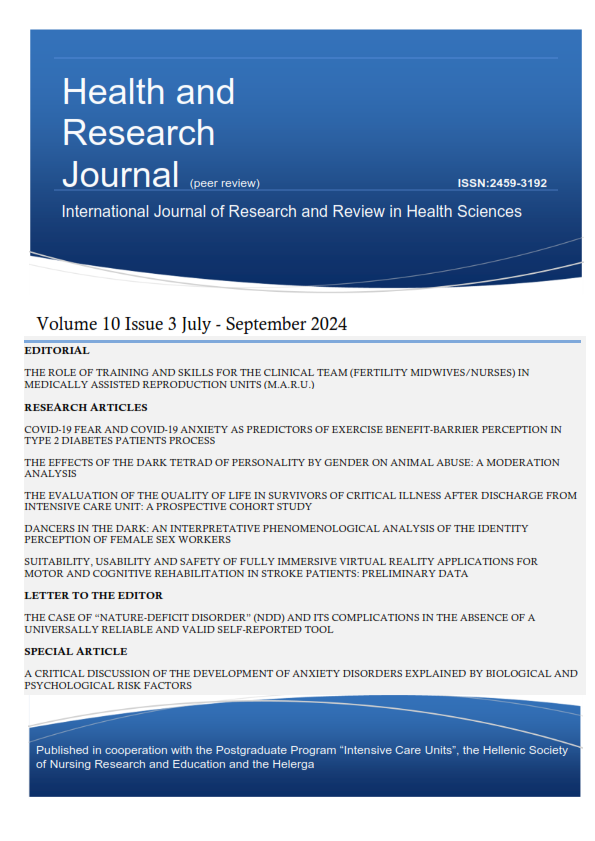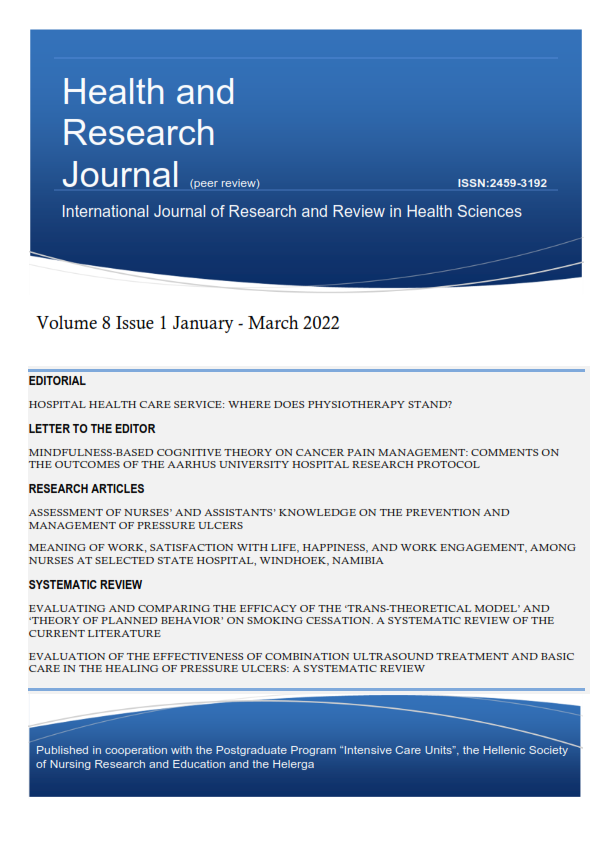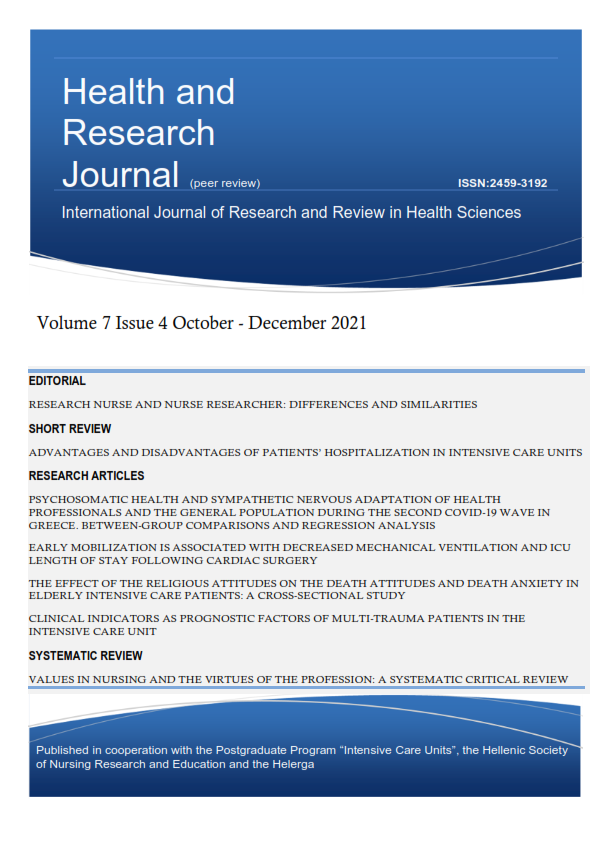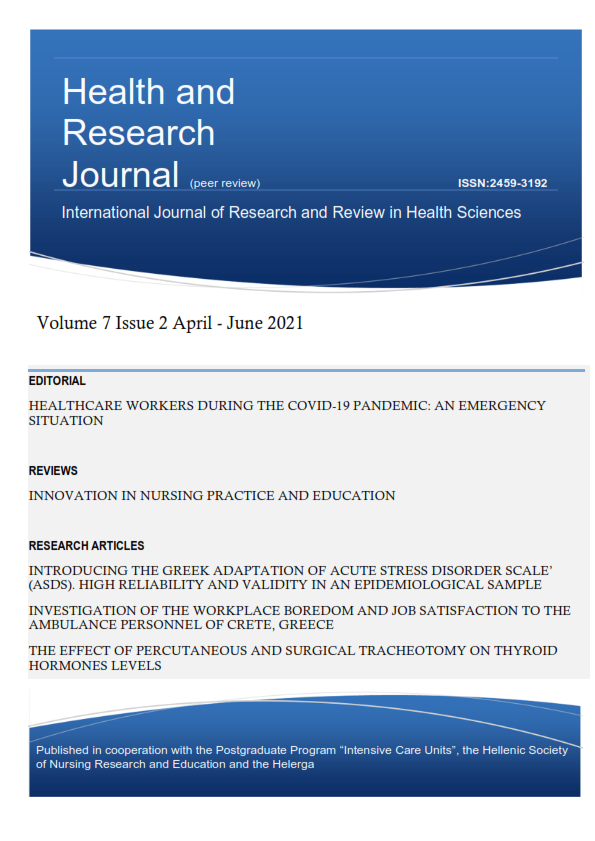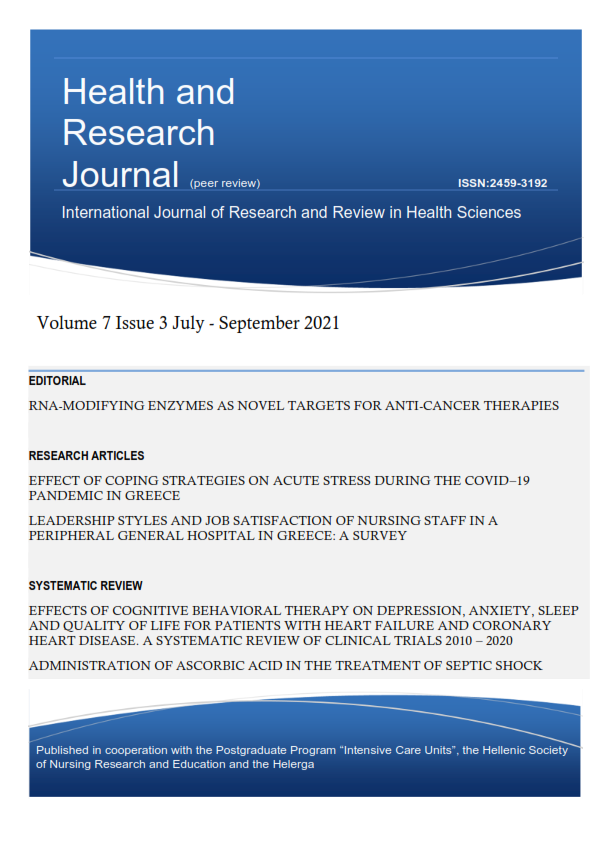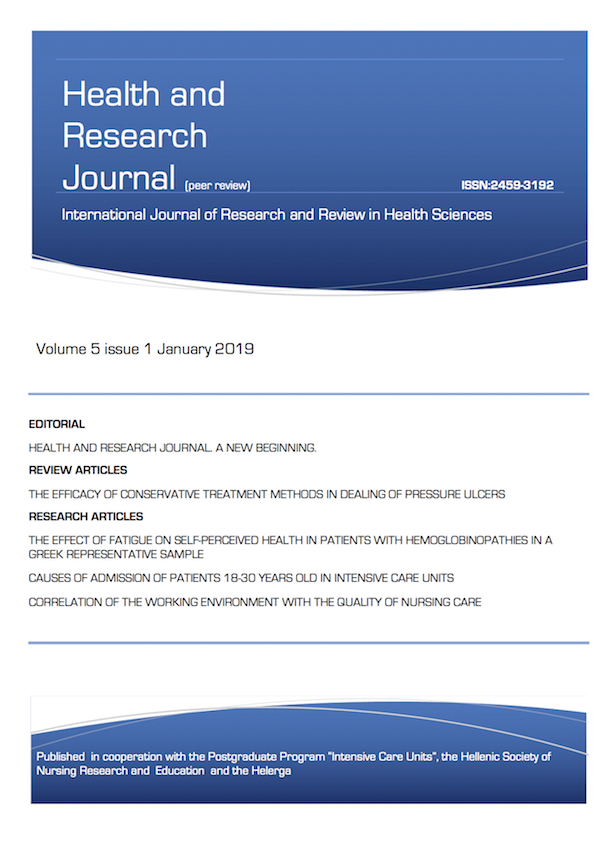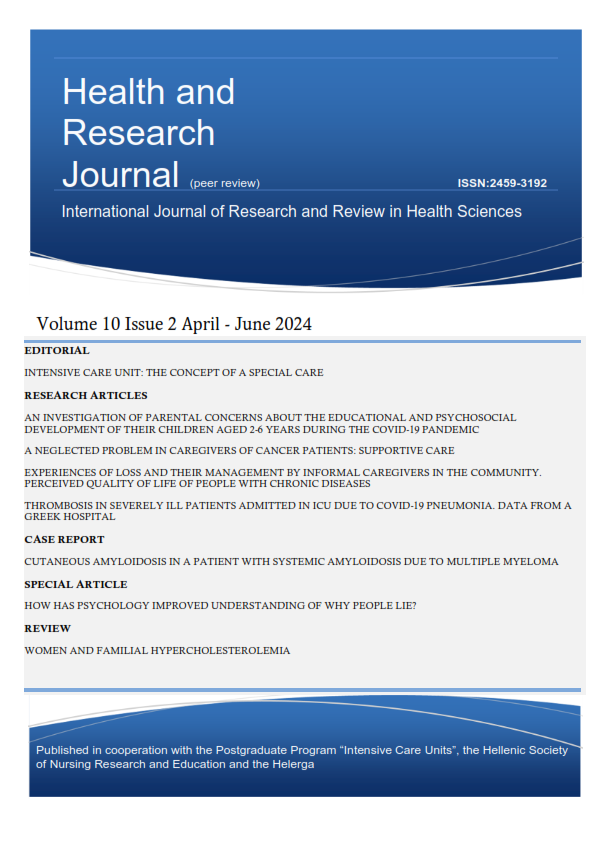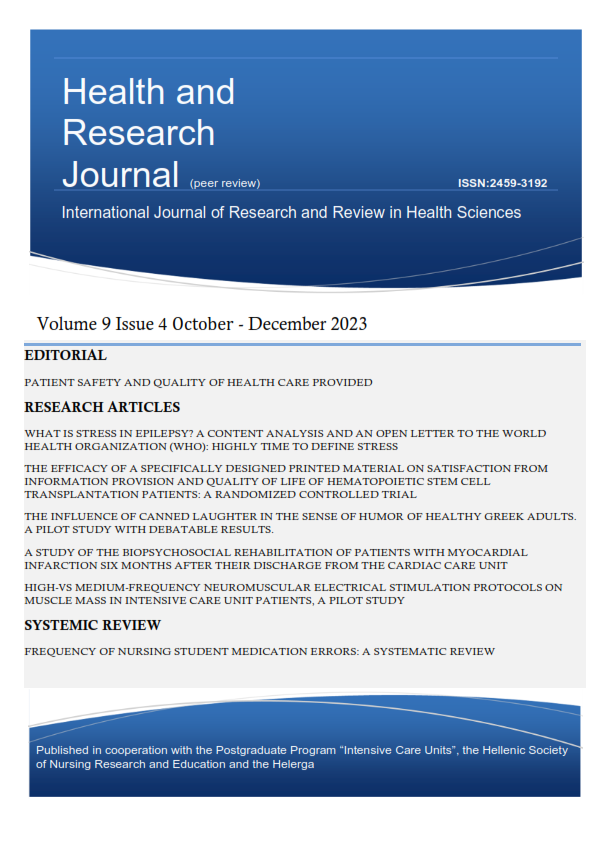Adaptation of "Nicholson McBride Resilience Questionnaire" (NMRQ) in Greek. A reliability and validity study in an epidemiological Greek sample
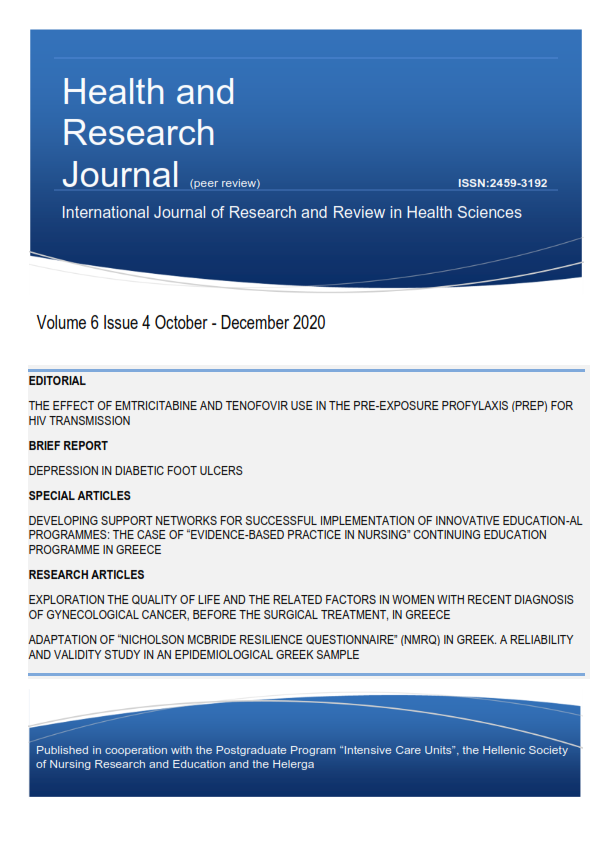
Abstract
Introduction: ‘Psychological Resilience’ is one of the key elements in human behavior that interplays with stress in mental disorders and physical illnesses in both healthy and unhealthy populations, regardless of their biopsychosocial background. Therefore, a reliable and valid resilience questionnaire for clinical and research use is of great necessity.
Aim: Hence, the present study was conducted in order for the original English version of ‘Nicholson McBride Resilience Questionnaire’ (NMRQ) to be adapted in the Greek population.
Methods & Materials: The original English NMRQ consists of 12 items measuring resilience. It is a self-reported questionnaire, while each respective item is measured through a 5-Likert scale point system. The design of the study was developed to firstly translate the original English questionnaire in Greek, and secondly to test the new version upon its ‘item consistency’, ‘internal correlation’, ‘internal consistency’, ‘consistency validity’, and finally perform a ‘factor analysis’ after recruiting a Greek sample.
Results: The results show 80% validity (Cronbach’s alpha=.800) of the new Greek version. The number of participants (N= 1,158) provided to the study an ‘a priori’ odds ratio of 1.274, a critical z of 1.6448 and an actual power of 95%. The Greek translation was considered accurate, while the new version maintained a good item consistency.
Conclusion: It is proposed that the Greek version of NMRQ may be adapted in the Greek population in clinical and research related to resilience and stress, as well as for any future studies to test-retest its validity and reliability.
Article Details
- How to Cite
-
Pilafas, G., Strongylaki, N. P., Papaioannou, D., Menti, D., & Lyrakos, G. (2020). Adaptation of "Nicholson McBride Resilience Questionnaire" (NMRQ) in Greek. A reliability and validity study in an epidemiological Greek sample. Health & Research Journal, 6(4), 123–131. https://doi.org/10.12681/healthresj.25629
- Section
- Original Articles
Copyright notice:
Authors retain copyright of their work and grant the Health and Research Journal the right of first publication.
License:
Articles are published under the Creative Commons Attribution 4.0 International License (CC BY 4.0). This license permits use, sharing, adaptation, distribution, and reproduction in any medium or format, including for commercial purposes, provided that appropriate credit is given to the author(s) and the original publication in this journal, a link to the license is provided, and any changes are indicated.
Attribution requirement:
Any reuse must include the article citation and DOI (where available), and indicate if changes were made.



